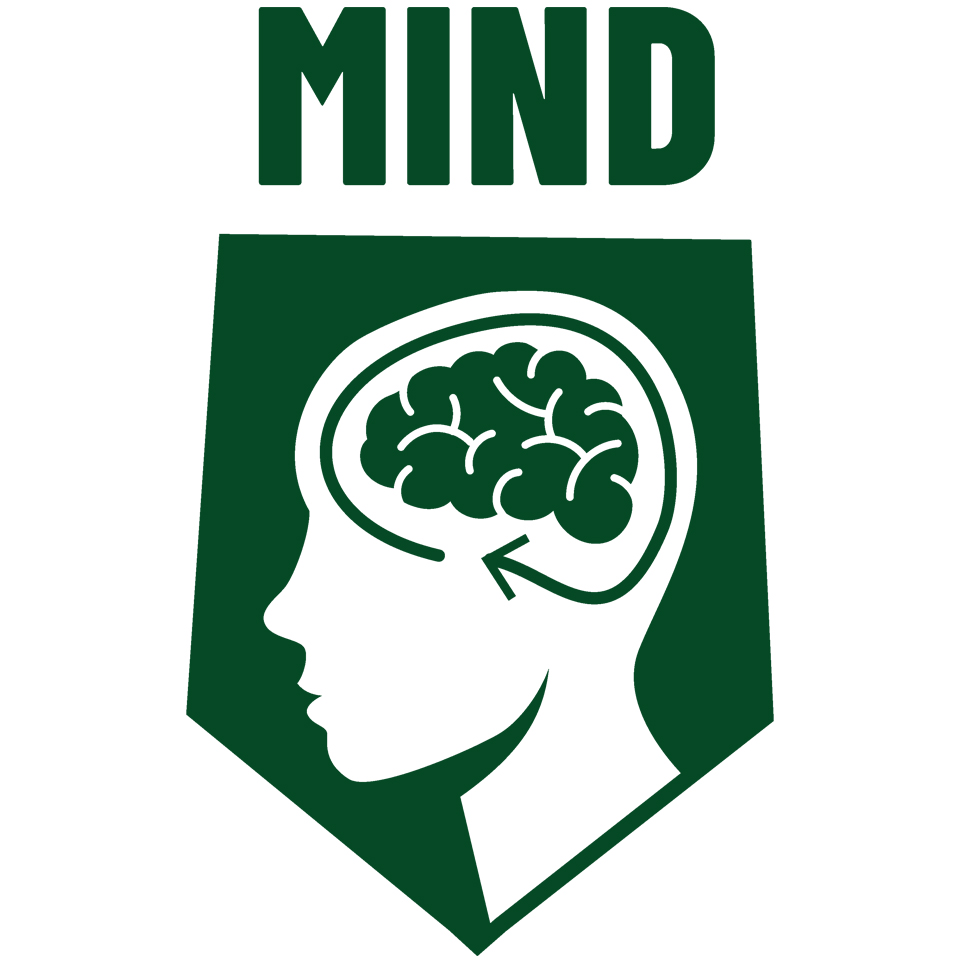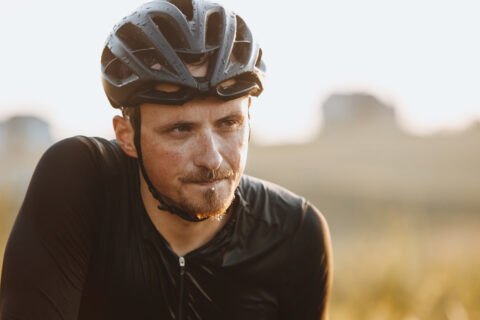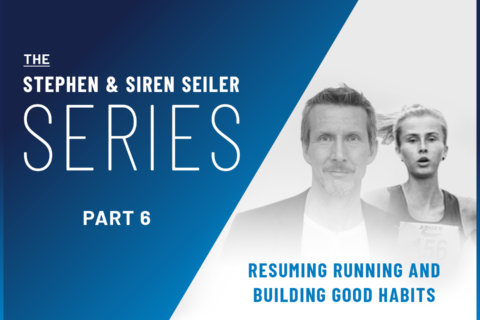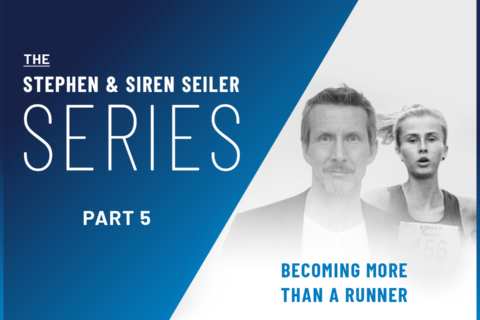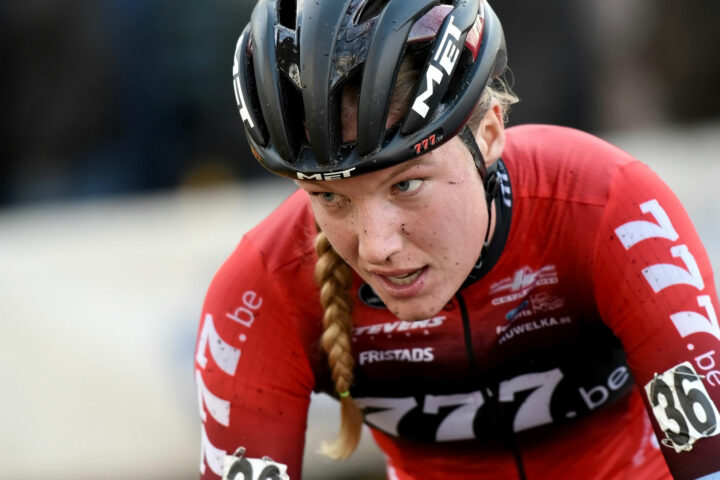Coach Grant Holicky discusses six ways by which all athletes can forge a better relationship with pain as a part of sport.
Video Transcript
Chris Case 00:00
Hey everyone, I’m Chris Case, welcome to Fast Talk Laboratories. Today I’m here with Grant Holicky of Forever Endurance, and we’re talking pain.
Grant Holicky 00:08
Pain for cyclists and endurance athletes is a major aspect of our sport, and a lot of us feel like we’re kind of defined by it. But at the same time, it’s a constant battle to understand how to deal with pain, and how to use pain to our advantage when we’re racing and training.
Chris Case 00:32
Welcome to Fast Talk Laboratories, your source for the science of endurance performance.
Chris Case 00:42
So, today’s topic is pain, and Grant, I know you have a foundational article on this subject from a pair of researchers out at Cal State.
Introduction to the Six Ways of Dealing With Pain
Grant Holicky 00:51
Yeah, it’s a pair at Cal State Fullerton, and they put out a paper in 2007, and it was Kristen Statler, interviewed Olympic male and big cyclists from the United States, and interviewed them about their relationship with pain, and they came out with six basic tenants that were going to frame today’s discussion based on.
Chris Case 01:12
Yeah, let’s dive into that give us the first one that they came with.
Pain Is Purely a Perception
Grant Holicky 01:15
The first thing they talked about was its pain is purely a perception. What this means is that to make it really, really simple is understanding that pain is a creation of our mind, it’s a creation of nerves reacting to a stimulus, and then our brain then turns that into what we feel as pain. So, as we go through this, and we look at that, it’s really important to kind of keep that in mind because it’s almost controllable, right? It becomes that idea that if we broaden that relationship with pain, if we really dive into that relationship with pain, and we spend more time there, we can get more and more comfortable being in that place.
Chris Case 02:00
Mindpower.
Grant Holicky 02:01
Yeah. Yeah. And it’s not just overcoming it, it’s almost that idea of comfort with it.
Chris Case 02:06
That relationship with it.
Grant Holicky 02:08
Yeah, exactly. And expanding upon that, one of the things that they say in this article they talked about that comes out when these interviews are that endurance athletes and specifically cyclists, pain is part of the identity of a cyclist. It’s something that they really see as unavoidable in the sport.
Chris Case 02:29
Sure.
Grant Holicky 02:29
Right? I always joke, no offense to people who play golf, golf is an incredibly difficult skill, right? But if we didn’t enjoy pain, and we didn’t enjoy those things, we would play something more akin to golf, or what I grew up playing baseball, right?
Satisfaction Leads to a Degree of Pain
Chris Case 02:45
Right.
Grant Holicky 02:45
And so that feeling of pushing ourselves, that feeling of pain, that knowing where the limit is, we’re going to continue to explore that as cyclists, and the more that we work those edges and explore and understand what triggers it for us, the better understanding we’re going to have about it, and the better, we’re going to be able to deal with it.
Chris Case 03:03
Yeah, I mean people have heard the phrase I’m sure, embrace it.
Grant Holicky 03:08
Right.
Chris Case 03:08
Some people deal with it in different ways, and that’s what we’re getting at these six different things, but also, it’s individualized as well. Some people wrap their arms around pain, and some people really make it a part of their identity, they become hard men or hard women.
Grant Holicky 03:22
Right, right. I think in some ways that’s a little bit dangerous in our sport, right? We get into that place where maybe we don’t take enough rests, or we don’t take enough recuperation, because we are defined by this thing of pain, and triathletes really fall into this, and I think cyclists fall into this, and so more, more, more, more, I want to hurt, right? Slightly masochistic, as we’ve discussed before, right?
Chris Case 03:48
That’s where it’s dangerous.
Mental Skills and Dealing With Pain
Grant Holicky 03:49
Yeah, and we’ve talked about this, and we talked about this on the podcast with Trevor about not going too far over that edge, but understanding how our mind and bodies interact together, are incredibly important in terms of moving this forward. One thing I’ll bring up and I bring this up a lot, the psychobiological model of sport, basically states that it’s a combination of your body and your mind about how you perform. In other words, when they’ve done experiments on athletes, they’ve had people ride to exhaustion and then seeing what’s left afterward, right? And there’s still ATP in the musculature afterward, so they could have pushed further. So, expanding how long you can go is not just the product of the body, but it’s also a product of the mind.
Chris Case 04:44
And this gets at the central governor theory, correct?
Grant Holicky 04:46
Right, right. So much touches back on the central governor theory, with Noakes and that gets expanded and broadened a little bit with the psychobiological model with Marcora, but more importantly, how are we going to use that? And what are we going to do as athletes? So, one of the other things that comes up in this article, so the degree of pain is a perception, right?
Pain Is a Piece of the Identity of an Athlete
Grant Holicky 05:12
Yeah, maybe I’m jumping ahead a little bit, but this is one of the most interesting and critical things I think about when it comes to sports psychology in general, especially getting on the bike as the purpose, the why that you’ve defined for yourself.
Grant Holicky 05:12
It’s a product of our mind and expanding upon that is the second piece that pain is a product of the athlete’s satisfaction with performance. Now, that could be a training performance, that could be a racing performance, but we’ve all been there, right? When we’re at 5% below threshold, in a threshold workout, it hurts a lot, because we can’t get any higher, and it feels worse, because we’re dragging, we’re behind, we’re having a hard time, then you’ve had those no chain days, and on those, no chain days, just feels amazing, right? It doesn’t matter. I’m 5% above, if I hold myself back, I keep looking down at the power meter not to make sure I’m going hard enough to make sure I’m backing off enough. So, we’ve all had these incredible days, and what’s really, really important for the individual athlete is understanding what triggers those things for you, right? Is it expectations? Is it stress at work? How are you getting on the bike? And then, therefore, what state you are when you’re getting on the bike? It’s probably going to have an influence on how you feel pain and how you interpret pain.
Grant Holicky 06:30
Right. So, we’re gonna come down to these cognitive skills, or your mental skills, they call it cognitive skills in the article, but to make it simpler, mental skills, right? What are you using to frame your training or frame your racing? So, what’s your why? Is that what we say all the time of forever endurance, but for all these athletes, and all of you guys out there, why are you doing this? Is it for fun? Is it to push yourself to the absolute limit? Is it like my absolute goal when I race which is to beat Chris? What is your ultimate goal when you’re racing? But then the other skills that come along with it, mental skills like visualization, and mental skills like mindfulness, getting yourself from that hectic day at the office to on the bike in a solid, concentrated, relaxed place so that you can go perform, and those are really important.
Chris Case 07:26
In this area of research, or this area of sports psychology, you’ll often hear people talk about intrinsic and extrinsic motivators.
Intrinsic and Extrinsic Motivators
Grant Holicky 07:36
Right. So, what they’re trying to say there, and this comes off a theory by Ryan and Deci, that basically states that self-determination theory is what an athlete is driven by, and we’re looking for athletes that are very intrinsically motivated, which means that they’re pushing themselves because of themselves. It’s not for the external rewards, it’s not for the trophies, it’s not for the placings, it’s for,
Chris Case 08:00
Parents or the pressure,
Grant Holicky 08:02
Right. If we’re talking about kids, yeah, absolutely. It’s more about what this athlete young and old wants to achieve. So, that’s why goal achievement or goal setting is so vital so that we really have an understanding coach and athlete of what it is that we’re working towards.
Chris Case 08:20
Let’s get back to the list. How many have we actually touched upon?
Grant Holicky 08:23
We’ve touched upon four of them, I think. We touched upon pain as a perception, we’ve touched upon satisfaction leads to that degree of pain, touched upon how important mental skills are in dealing with that pain while we’re performing, and we’ve touched upon pain is kind of a piece of the identity of an athlete. So, there are two other things that they mentioned in this article.
Mind-Body Dualism
Grant Holicky 08:45
One of them is that and we’ve talked about this a little bit already, but that the mind and the body are dualism when we’re performing. What that means is that you can’t have one without the other, right? The old Yogi Berra quote is that 50% of sport, or 90% of sport is mental, and the other 30% is physical. I don’t know how he says that, but it’s something great, the great Yogi Berra quote. The idea is that it’s not all physical, and it’s not all mental, right? So, if you have an athlete that’s forming terribly well, they’re not just gifted mentally or physically, or you have an athlete that’s falling apart, they’re not just the head case, right? There’s always this combination of the two, and one of the things I talk about a lot with my athletes is, where were you today? What was it today? You know, where did you come into that race for that training session? How did you feel? I think that’s really hard for us all to wrap our heads around, right? It’s like, well, no, my bike is the escape. I don’t want my bike to be a product of the other things in life. But that’s why coming back to those mental skills, it’s so important to understand that we need that break from our lives to the bike, and it doesn’t matter if you’re a pro athlete where all you do is ride, you still have relationships, you still have sponsorship relationships, still have contracts, but for the vast majority of us, full-time jobs, family at home, and all those things are gonna have an influence on how our mind reacts, and therefore how our body reacts.
Chris Case 10:15
Absolutely. What’s the last one?
Grant Holicky 10:17
The last one. This one’s a personal favorite of mine, I really, really like this. I’ll preface it with a story. Way back when I was a triathlete, I remember going out on these training runs, and I remember,
Chris Case 10:31
Just the sight of you running.
Grant Holicky 10:33
Yeah, it’s like a stampede.
Chris Case 10:35
Yeah, I like it.
Grant Holicky 10:37
Yeah, the Savannah.
Grant Holicky 10:40
We were out on a training run, and I was out with a couple of my training partners, I was dying, I just remember going down Monarch Road in Boulder, and I was dying. I was like, “Guys, we got to back it off, we got to back it off,” the guy in front of me turned around and went, “Dude, we’re only going eight-minute miles,” I just feel so much worse. He goes, “Then you come up in front and lead.” So, I went upfront and I’m leading I’m like, “I feel so much better. This is fantastic.” A guy had a Garmin on and yelled from the back, “We’re going the same speed.”
Control Changes the Perception of Pain
Grant Holicky 11:08
So, the last tenet of this, so the last thing that they bring up is control changes the perception of pain. So many of us on the bike understand this, and this is why there’s always that relationship, it’s one thing to always send the wheels, it’s one thing to get that draft, but there’s this whole other idea of when somebody else is dictating the speed, you are not in control of the situation. In fact, it goes so far in some of the interviews in this article to say that suffering is a product of somebody else, somebody else is making me suffer, I don’t make myself suffer, somebody else is making me suffer. So, the idea of control, and I so often talk with my athletes about that feeling of head out the window as a dog in the car, tongue flapping in the breeze going, “This is awesome.” And you can’t get that feeling if you’re staring at somebody else’s wheel. So, that aspect of control is a major piece.
Chris Case 12:09
And I think if you’ve raced cyclocross if you’ve raced a crit if you’ve raced something a bit shorter perhaps, but not necessarily, if you’re driving the pace, you feel one thing, if you’re behind somebody else in there driving the pace and dictating what pace is being set, you’re also feeling something entirely different.
Grant Holicky 12:31
Yeah, there’s actually another article, and we’ll post this one on the website, too, there was a study about drafting on climbs, or sitting in on a climb, and it was done on professional cyclists. So, what they did is they looked at this and they took all the other factors out, you know, wind help, drafting help, all those other things, and they found that simply riding behind a teammate on a climb, helped people’s perception of how hard it was, and help their motivation, and helped how excited they were and then their positive experience on that ride. So, that was different if they were riding behind a competitor.
Chris Case 13:09
Sure.
Grant Holicky 13:10
Right? Because of the competitive riding behind it, we get out of this control aspect, but this is why you’re starting to see in Grand Tours, and on climbs line the team up on the front, because then their main rider, you know, gets the sit in, he gets to dictate the pace.
Chris Case 13:27
And he’s protected.
Grant Holicky 13:28
Talking into the radio, he’s doing all those things a little faster, a little slower, all that stuff. They’re the ones in control, and we’ll watch great climbers fall off the back at a pace they should be able to hold, but it’s because they’re not in control. So, the next time you’re out on a ride, go to the front, see how that changes your perception of how you’re feeling, and I’ll say this a lot in short races, especially like cyclocross can’t tell you how many times I’ve heard from the sidelines, get off the front, because they’re worried about the drafting, but cyclocross or a crit, you get to control the pace when you’re on the front, you get to control how quickly you’re taking a corner, how you’re taking this technical section, all those things, and completely can change your view of that race.
Chris Case 14:15
Why don’t we close with a few other tips for people out there? You’ve worked with your athletes, you know, you tell them go out on a group ride, and sit in for a little while and really tune into what you’re feeling upstairs, and then go to the front and do the same. What are some other tips that people can use to try out some of these six points?
Tips for Utilizing the 6 Ways To Deal With Pain
Grant Holicky 14:38
Yeah, I think some of the things that you can do is really walk into a workout with a goal, right? And understanding that the goal doesn’t necessarily need to be about the numbers, right? The goal is about getting everything out of yourself on a given workout or a given race or any of those things, right?
Functional Threshold Power
Grant Holicky 14:55
Can I get the most out of myself today? We talk about this a lot functional threshold power, the functional part of functional threshold power states that today that might be a little bit different than tomorrow, or it might be a lot different than last week when you just were on vacation. So, understanding what your goal is for that day, I’m going to get the most out of myself today, I’m not going to worry about those numbers as much as what am I letting out? Right? So, I think that’s a really, really big one.
Not Masking the Pain
Grant Holicky 15:26
And I think another one is, I don’t really want to talk so much about masking the pain or distracting ourselves from the pain. There are some really interesting studies out there that have people do math problems, while they’re riding to exhaustion, and the time to exhaustion went longer. But this is in an environment where the wattage is controlled by the ergometer that they’re on, the real world isn’t like that. So, distracting ourselves from the pain probably is just going to, in the end, distract ourselves, right? And attentional focus to pacing is incredibly important to get that done. So, it’s not masking the pain, it’s not avoiding the pain, it’s almost buying into it, and understanding that this is part of our sport, this is part of what we’re going to do, and we’re gonna accept it, we’re going to let it into our world and really embrace it, and understand that it is a positive, right? You can’t have progression without discomfort, and so as we buy into that central tenant of training, we’re going to be much, much better off as we go forward.
Chris Case 16:33
Thank you, Grant, for joining us today. That was a great discussion on pain. If you have any questions for Grant or myself, or if you want to share your story about your relationship with pain, head on over to our forum, that’s forums.fasttalklabs.com.
Grant Holicky 16:47
We’d love to hear from you guys and how you’re using pain in your training and in your racing to make yourself a better athlete.
Chris Case 16:53
Absolutely. We’ll see you next time here at Fast Talk Laboratories.
